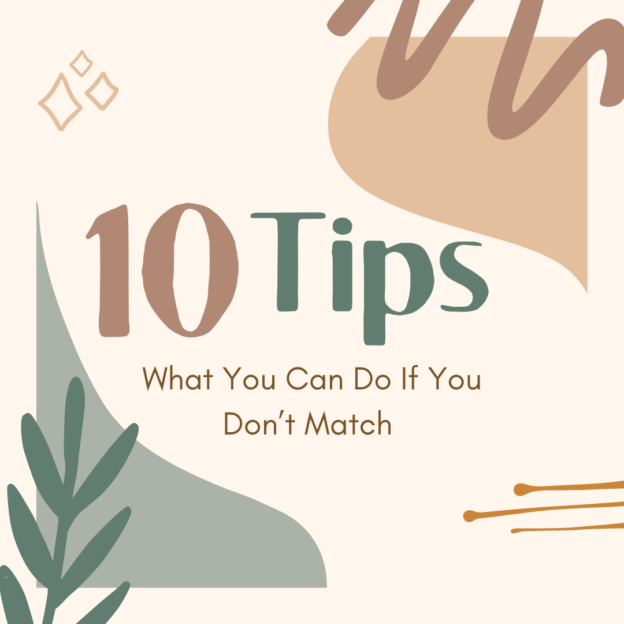As pharmacy residency application season comes to a close, it’s time to take a deep breath and reflect on the experience. Regardless of the outcome, it’s important to remember that you’ve put in a tremendous amount of effort and dedication to get to this point.
Things didn’t go as planned but here’s 10 things you can do now to try to focus on what you can versus what you cannot.
10 Things to Do
- Do not panic or lose hope. Not matching is not the end of your career and there are still opportunities to pursue your goals
- Review your application materials and identify areas of improvement. Seek feedback from mentors, preceptors, faculty members, or peers who can help you improve your CV, letter of intent, interview skills, etc
- Consider participating in Phase II of the Match or the Post-Match Scramble. Phase II is another round of matching for programs that still have unfilled positions after Phase I. The Post-Match Scramble is an informal process where applicants can contact programs directly after Phase II to inquire about any remaining vacancies
- Be flexible and open-minded about your options. You may need to expand your geographic preferences, consider different types of programs or settings, or apply for non-traditional residencies such as fellowships or industry positions
- Network and stay connected with potential employers, mentors, preceptors, faculty members, alumni, or colleagues who can offer you advice, support, referrals, or opportunities.
- Update your online profiles and portfolios such as LinkedIn, ePortfolio, ASHP Connect etc., to showcase your achievements, skills, and interests.
- Seek out additional learning opportunities such as continuing education courses, certificate programs, webinars, podcasts, journals, etc., to enhance your knowledge and skills and demonstrate your commitment to professional development
- Explore alternative career paths or transitional roles that can help you gain valuable experience and exposure to different aspects of pharmacy practice such as clinical pharmacist, staff pharmacist, adjunct faculty member, consultant pharmacist, etc
- Maintain a positive attitude and a growth mindset. Do not let rejection or failure define you or discourage you from pursuing your goals. Learn from your mistakes and challenges and use them as opportunities to improve yourself
- Seek professional help or support if needed. Not matching can be a stressful and emotional experience that can affect your mental health and well-being. Do not hesitate to reach out to counselors, therapists, coaches, mentors, friends, family members, or other sources of support who can help you cope with your feelings and provide you with guidance and encouragement.
